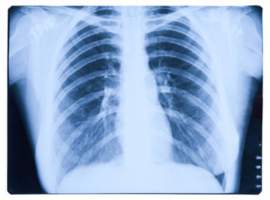
Clinical Trials

What is Mesothelioma Cancer? Mesothelioma cancer is an uncommon form of cancer that develops from the mutation of cells in the mesothelium—the protective lining that serves as a shield for a number of internal organs of the human body. Mesothelioma cancer is often caused by exposure to asbestos fibers or filaments. The bulk of mesothelioma sufferers typically have worked in jobs where they were in close proximity or direct contact with asbestos. Although there are a number of types, Mesothelioma cancer often forms in the outer lining of the lungs and the internal wall of the chest cavity. Symptoms associated with the disease are: shortness of breath (derived from a build-up of fluid between the lungs and the chest wall), substantial coughing and severe weight loss. In the bulk of cases, diagnosing mesothelioma cancer is exceptionally difficult. The problems tied-into diagnosis stem from the cancer’s slow-developing symptoms--mesothelioma symptoms remain harmless for decades following the initial formation of mesothelioma tumors. Mesothelioma, similar to other cancers, is categorized by stage. As mesothelioma progresses, the outlook becomes more and more pessimistic. The insidious nature of the cancer is attached to the disease’s inconspicuousness to create an extremely deadly disease—most mesothelioma patients die within one year of diagnosis. The brutal outlook associated with mesothelioma derives from an inability to quickly and accurately diagnose the disease. Mesothelioma cancer is rarely identified in its early stages. And when mesothelioma advances to its latter stages the disease becomes inoperable. That being said, there are several mesothelioma treatment options—some palliative and some curative—to either improve the patient’s quality of life or to tangibly extract the cancerous bodies. Moreover, there are several mesothelioma treatment options which are currently in clinical trials. What are Clinical Trials? Clinical trials refer to sets of procedures in drug development and medical research that are conducted to promote safety and efficacy for health interventions. Typically, a clinical trial will take place only after substantial information has been gathered on the quality of the drug or treatment initiative. To accurately conduct a clinical trial an investigator will employ health patients or volunteers and place them into small pilot studies. These small groups will be agglomerated after the new drug or product is compared with a traditional or currently prescribed treatment method. As efficacy data amasses, the number of patients will increase to secure an accurate understanding of the drug’s effectiveness. Clinical trials will vary in size from a single center in one jurisdiction to multi-center trials in several countries. Types of Clinical Trials: One way of classifying a clinical trial is to control how the researchers behave. For example, an observational study is one where investigators observe the patients/volunteers and measure their outcomes. In this type of clinical trial, the researchers will not actively manage the study. By contrast, in an interventional study, the investigators five the subjects a specific medication or other product. Typically, the investigators will compare the treated subject to individuals who have received standard treatment or no treatment. Following this comparison, the researchers will then measure how the subject’s health fluctuates or changes. The United States National Institutes of Health organizes trials intro five different categories: Prevention Trials: These types of clinical trials look for more effective ways to prevent disease in individuals who have never had the disease or to prevent the condition from returning. These approaches will often include: vitamins, vaccines, lifestyle changes, minerals and medicines. Screening Trials: These types of clinical trials will test the most efficient way to detect a health condition or certain disease. Diagnostic Trials: These clinical trials are conducted to find more effective procedures or tests for diagnosing particular cancers or diseases. Treatment Trials: These clinical trials test experimental treatments, new approaches to therapy or surgery and new combinations of drugs. Quality of Life Trials: Appropriately named, a quality of life trial will explore ways to improve a patient’s comfort and the quality of life for those with chronic diseases. Expanded Access Trials: These clinical trials provide partially tested and unapproved therapeutics before a small number of test subjects that have no other realistic treatment options. Typically this clinical trial type will involve a disease for which no effective treatment course exists or for those patients who have already attempted and failed standard treatments. An expanded access trial may also be undertaken for those patients whose health is so fragile that he/she does not qualify for participation in anonymous clinical trials. Frequently, case by case approval has to be granted by the pharmaceutical company responsible for creating the drug and the FDA.


















